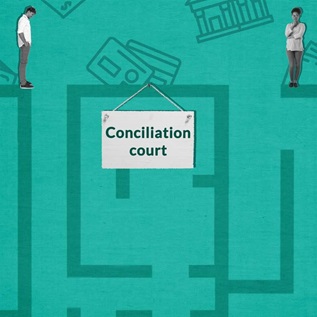Pew Releases Ratings of Nation's Top Banks on Key Consumer Protections
No Bank Achieves Best or Even Good Practices Across All Categories
WASHINGTON, D.C. — A study from The Pew Charitable Trusts is the first to rate the largest U.S. banks on their policies regarding checking account disclosure terms and fees, overdraft, and dispute resolution practices. Analyzing the checking accounts of the nation's top banks that represent more than half of all domestic deposit volume, Checks and Balances: Measuring Checking Accounts' Safety and Transparency, underscores the continued gaps in banking procedures that put consumers at financial risk and expose them to high, unexpected costs for little benefit.
"Over three years, we have seen progress by some banks, specifically in their checking account disclosure documents," said Susan Weinstock, Pew's safe checking expert. "However, banks still have much room for improvement. Consumers should have strong protections, no matter where they bank. We urge the Consumer Financial Protection Bureau to develop new rules ensuring greater transparency and less risk in this fundamental product."
Checks and Balances provides a new, comprehensive rating system in which banks' checking accounts are assessed for "best" practices and "good" practices across three categories. Pew defines the "best" as those that are the most effective in:
-
Providing checking accountholders with clear and concise disclosure about costs and terms.
-
Reducing the incidence of overdrafts and eliminating practices that maximize overdraft fees.
-
Offering consumers a meaningful choice to resolve a problem with their bank rather than including mandatory binding arbitration clauses in checking account agreements.
-
Ninety-seven percent of the banks achieved at least one best practice. But even among the highest-performing banks, virtually none performed well in every studied category.
-
Fourteen of the top 50 banks could not be included in the study because key terms and fees were not accessible online or by mail. These financial institutions failed to provide the opportunity for consumers to review all of the relevant disclosures for checking accounts without visiting a branch.
-
Two of the nation's largest financial institutions—Citibank and Bank of America—are among the five highest-performing banks in Pew's analysis. The top five scores include those earned by Ally Bank, Charles Schwab Bank, First Republic Bank, Citibank, and Bank of America.
-
While Ally Bank achieved the highest number of best practices, it still failed to provide optimal policies across all three studied categories.
-
Summarize key information about terms and fees in a concise, uniform format.
-
Provide account holders with clear, comprehensive terms and pricing information for all available overdraft options.
-
Make overdraft penalty fees reasonable and proportional to the financial institution's costs in providing the overdraft loan.
-
Post deposits and withdrawals in a fully disclosed, objective, and neutral manner that does not maximize overdraft fees.
-
Prohibit predispute mandatory binding arbitration clauses in checking account agreements, which prevent account holders from accessing courts to challenge unfair and deceptive practices or other legal violations.






